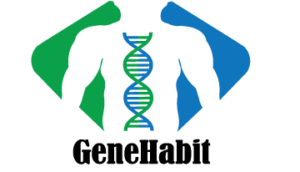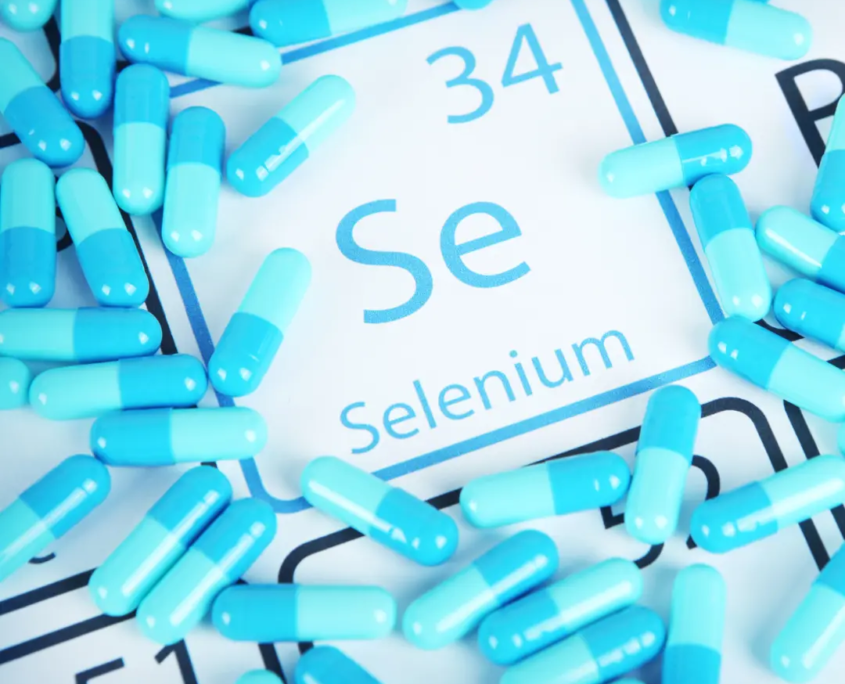Selenium Benefits for Hair: Secrets to Healthy Hair
Introduction
The health of our hair is influenced by various factors, including our diet and nutrition. One essential trace element that plays a significant role in hair health is selenium. Selenium is vital for our body to function properly. It includes the growth and strength of our hair. In this blog, we will explore the link between selenium and hair strength. We will see how selenium helps hair grow well.
Selenium is an essential trace element that our body needs in small amounts. Selenium also plays a crucial role in the proper functioning of our immune system. Selenium deficiency can cause health issues, including hair loss. But, too much selenium can also harm our hair and health.
Knowing why selenium is crucial for hair health helps keep hair strong and healthy. We can do this by eating selenium-rich foods. We can also consider selenium supplements. They will help our hair grow and stay strong. Let’s dive deeper into the science behind selenium and its impact on hair strength.
Understanding Selenium and Its Importance for Hair
Selenium is a trace element that plays a vital role in hair growth and health. It is an essential nutrient for hair. It plays a role in biological processes that affect hair follicles. An imbalanced Selenium levels cause hair cycle impairment and hair loss. Selenium protects the hair follicles from oxidative stress and damage. It also supports the immune system, ensuring a healthy environment for hair growth. Low selenium levels can harm hair growth, leading to hair loss and weak hair follicles. To prevent hair loss from selenium, understand the amount needed for healthy hair.
What is Selenium?
Selenium is a trace mineral that is essential for the proper functioning of our body. Our body needs only a small amount. Selenium is crucial in many biological processes. These include DNA synthesis, reproduction, and thyroid hormone metabolism. It also acts as an antioxidant. It protects our cells from oxidative damage caused by free radicals. In the context of hair health, this is particularly important for the growth and strength of our hair. It helps hair follicles function and keeps hair growth healthy. Maintaining strong, healthy hair requires enough of this vital mineral. This is why Selenium sulfide is commonly used in dandruff treatments.
The Role of Selenium in Hair Health
Selenium plays a significant role in maintaining the health and strength of our hair. It is involved in various processes that contribute to healthy hair growth. It helps in the production of proteins and enzymes that are essential for hair growth. Selenium protects hair follicles from damage. It also prevents hair follicle weakening. It promotes a healthy scalp environment, ensuring optimal conditions for hair growth. Inadequate selenium levels can lead to hair loss and weakened hair follicles. We can support hair health and strength by keeping selenium levels optimal. We can do this through a balanced diet and, if needed, dietary supplementation.
The Science Behind Selenium and Hair Strength
To grasp selenium’s impact on hair strength, let’s explore the science behind it. Oxidative stress happens when free radicals outnumber antioxidants in the body. Free radicals harm cells, like hair follicles. Selenium activates antioxidant enzymes. Selenium protects hair follicles from damage by acting as an antioxidant. They neutralize free radicals, reducing stress and promoting hair strength. Keeping selenium at optimal levels supports the antioxidant defenses of our hair follicles. It also promotes stronger, healthier hair.
Selenium Benefits For Hair Follicle Health
Selenium plays a crucial role in maintaining the health of our hair follicles. Hair follicles are small structures in the skin that produce and support hair growth. Here are some ways in which selenium impacts hair follicle health:
1. Selenium helps hair follicle stem cells grow and regenerate hair.
2. Using Selenium gives your hair a boost of antioxidants, protecting and strengthening it.
3. Selenium helps keep a healthy scalp. It ensures the best conditions for hair follicles.
4. Selenium helps make proteins and enzymes. They are key for growing and maintaining hair follicles.
We can support hair health by ensuring enough selenium. It helps hair follicles work well. This leads to stronger, healthier hair.
Selenium Deficiency and Its Effects on Hair
Selenium deficiency can have significant effects on the hair health. Inadequate selenium can cause hair loss and texture changes. Selenium deficiency weakens hair follicles, causing breakage and hair loss. This can impact protein and enzyme production vital for healthy hair. As a result, hair may become brittle, dull, and prone to breakage. Additionally, excess selenium can also lead to hair loss problems. Identifying signs of selenium deficiency is crucial. It’s important for healthy hair.
Identifying Signs of Selenium Deficiency
Spotting the signs of selenium deficiency is important. It helps address it and keep hair healthy. Here are some common signs of selenium deficiency:
1. Hair loss or thinning: Selenium deficiency weakens hair follicles, causing hair loss.
2. Nail health: Brittle nails and white spots on the nails can state selenium deficiency.
3. Weak immune system: Selenium deficiency can weaken the immune system. It leads to frequent infections and illnesses.
4. Selenium deficiency can cause bad breath and a metallic taste. It makes the breath smell like garlic and gives the mouth a metallic taste.
5. Fatigue and weakness: Selenium deficiency can contribute to fatigue and weakness.
If you have these symptoms, you must consult a healthcare professional. They will check your selenium levels and plan the best action.
How Selenium Deficiency Affects Hair Texture and Strength
Selenium deficiency can have a significant impact on hair texture and strength. When we don’t have enough selenium, hair can break easily. This can result in changes in hair texture, including rough, brittle, and dull hair. A lack of selenium can also hurt hair. It affects the making of proteins and enzymes needed for healthy hair growth. This further weakens hair. Addressing selenium deficiency is crucial for maintaining healthy, strong hair. We can maintain optimal selenium levels by adding selenium-rich foods to our diet. Or, we can consider selenium pills under the guidance of a healthcare professional. This will also promote healthier hair.
Can selenium deficiency lead to hair loss?
Yes, selenium deficiency can lead to hair loss. Selenium plays a crucial role in maintaining scalp health and promoting hair growth. Lack of selenium disrupts the hair growth cycle, causing hair thinning and loss. It is essential to ensure adequate selenium intake for healthy hair.
The Genetic Connection to Selenium Absorption
Genetic factors can influence how our body absorbs and utilizes selenium. Like other nutrients selenium absorption and utilization vary among individuals. Genetic variations can affect how well the body absorbs selenium. This leads to differences in selenium levels. This can affect hair health and strength. Understanding the genetic factors that affect selenium use can help. It can identify people prone to selenium deficiencies. It can also help tailor interventions for them.
Understanding the Genetic Factors Influencing Selenium Utilization
Genetic factors play a significant role in how our bodies utilize selenium. Genetic variations can affect the efficiency of selenium absorption and utilization. It leads to differences in selenium levels among individuals. These genetic factors can influence the risk of selenium deficiencies, and hair loss. Knowing how genes affect selenium use helps target deficiencies better. This can personalize interventions for specific individual needs. Health experts offer personalized selenium advice for improved hair health based on genetics.
The Interplay Between Genetics and Selenium Deficiency Symptoms
The interplay between genetics and lack of selenium can greatly affect our health. It can cause premature aging and hair loss. Genetic factors can up your chance of selenium deficiencies. It can cause symptoms and health problems. Selenium deficiency can cause oxidative stress. It can damage cells and speed up aging. Certain genetic variations in individuals increase the risk of selenium deficiency in them. Accelerating premature aging signs like fine lines and wrinkles, and altered hair texture. Understanding genetics and selenium deficiency helps identify high-risk individuals, offering personalized treatment.
What are the benefits of selenium for hair health?
Selenium helps hair grow, prevents dandruff, and maintains scalp health. A vital mineral acts as an antioxidant, shielding hair follicles. Incorporating selenium-rich foods or supplements can contribute to stronger, healthier hair.
Incorporating Selenium into Your Diet for Healthier Hair
To foster healthier hair, consider enriching your diet with selenium-rich foods. Including selenium sources in your meals can boost hair health. It’ll make your hair glossier and stronger.
Natural Food Sources Rich in Selenium
A balanced diet with selenium-rich natural foods is crucial for healthy hair. Here are some natural food sources that are rich in selenium:
1. Brazil nuts: These nuts are considered one of the best sources of selenium.
2. Seafood: Fish and shellfish, such as tuna, salmon, and shrimp, are good sources of selenium.
3. Meat and poultry: Beef, chicken, and turkey are also good dietary sources of selenium.
4. Dairy products: Milk, cheese, and yogurt contain selenium.
5. Grains and cereals: Whole grains, such as wheat, rice, and oats, can provide selenium.
Boost your hair health by adding these selenium-rich foods to your meals. They provide your body with the essential selenium it needs for healthier hair and a better you.
Recommended Daily Selenium Intake for Optimal Hair Health
The recommended daily intake of selenium varies by age, sex, and individual needs. The recommended dietary allowance (RDA) for adults is 55 mcg of selenium per day. Consuming too much selenium can harm hair health. It is recommended to stay within the RDA to avoid selenium toxicity. Ensure you consume enough selenium from food or supplements for healthy hair. Meeting the daily selenium intake helps hair growth and strength. It boosts hair health.
Selenium Supplementation: Benefits and Cautions
Selenium supplements help those who struggle to get enough selenium from food. Here are some potential benefits and cautions of selenium dietary supplementation:
Benefits:
A. Supports healthy hair growth and strength.
B. Provides antioxidant protection against oxidative stress.
C. Helps maintain optimal selenium levels.
Cautions:
A. Excessive selenium intake can lead to selenium toxicity. This can cause hair loss and other health issues.
B. Follow the dosage. Consult a healthcare professional before taking selenium supplements.
C. Think about the benefits and risks to decide if selenium supplements are right for you.
Choosing the Right Selenium Supplement
Consider dosage, form, and quality when choosing a selenium supplement. Here are some things to consider when selecting a selenium supplement:
A. Dosage: Follow the recommended dosage provided by the supplement manufacturer. You may consult with a healthcare professional for guidance.
B. Form: Selenium supplements are available in various forms, including capsules, tablets, and liquid. Choose a form that is convenient and easy for you to take.
C. Quality: Search for trustworthy brands with third-party testing and quality certifications. They confirm the supplement’s purity and potency.
Remember, selenium supplements should be part of a healthy lifestyle. Consult a healthcare professional for guidance on the right supplements for you.
Potential Side Effects of Excessive Selenium Intake
Selenium toxicity can have adverse effects on your health, including hair loss. Here are some potential side effects of excessive selenium intake:
Hair loss: High levels of selenium can cause hair loss and brittle hair.
Nausea and gastrointestinal issues: Excessive selenium intake can lead to various health concerns. Such as digestive issues, including nausea, diarrhea, and abdominal pain.
Fatigue and irritability: Selenium toxicity can cause fatigue, weakness, and mood changes.
Nail brittleness: Brittle nails can be a sign of excessive selenium intake.
To prevent selenium toxicity, follow daily intake guidelines. Consult a healthcare professional before taking selenium supplements. They’ll assess your needs and check safe selenium levels for you.
Conclusion
Understanding how selenium boosts hair strength is key for healthy hair. Eat selenium-rich foods for strong hair and watch for deficiency signs. Consider supplements, but be cautious of side effects. Your genetic makeup can influence selenium absorption and utilization. You must understand how your genes affect this process. This is crucial for improving your hair health and well-being. HairLife DNA test provides personalized recommendations and treatments based on your genetic profile. It will lead to better hair health and strength. Start developing your personalized plan today by filling out the form below.
Frequently Asked Questions
How Long Does It Take to See Effects of Selenium on Hair?
The effects of selenium on hair can vary depending on individual factors and hair health. In general, it may take several weeks to months. This is to see noticeable improvements in hair health. Consistency and patience are key when incorporating selenium into your hair care routine.
Can Selenium Use Reverse Hair Loss?
Selenium can support hair health and promote hair growth. Yet it may not reverse hair loss caused by other underlying factors. If you’re losing hair from hormones or genetics, only selenium won’t help much.
Is There a Risk of Selenium Toxicity When Used for Hair Strength?
There is a risk of selenium toxicity if excessive amounts of selenium are consumed. To use selenium supplements safely, follow dosage directions. Consult a healthcare professional beforehand.
Does selenium help with gray hair?
Selenium is not known to directly affect the graying of hair. Gray hair is primarily caused by a natural aging process and genetics. Selenium’s antioxidants help hair health and prevent premature hair aging.
Are zinc and selenium good for the hair?
Both zinc and selenium play important roles in hair health. Zinc helps with hair growth and scalp health. Selenium supports hair follicle function and fights oxidative stress.
Book a consultation
Simply fill in your details in the form below and we’ll get in touch with you shortly







